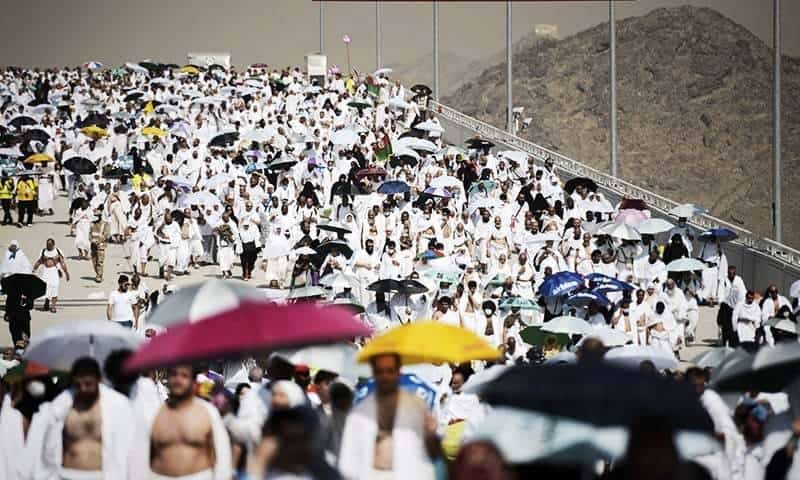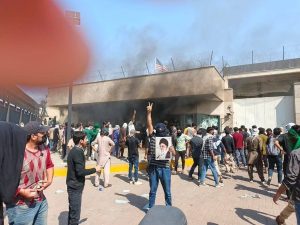Imagine paying a fortune for Hajj and still enduring significant hardships. This is the reality for many Pakistani pilgrims who are facing immense problems during their stay in Mina due to unsatisfactory arrangements at Maktib.
Today, June 14, marks the first day of Hajj, when pilgrims move to Mina, a desert plain near Makkah, where thousands of tents are set up to house them. The tents are categorised based on their proximity to Jamarat. After Mina, pilgrims will spend a day worshiping on the Mountain of Arafat, transition to Muzdalifah to gather pebbles, and then return to Mina for the symbolic stoning of pillars representing evil.
In an exclusive video shared with Daily Pakistan, pilgrims can be seen suffering with extremely poor arrangements in the scorching heat. The footage vividly depicts the lack of basic facilities and the distress faced by the pilgrims.
The government has received up to Rs1,075,000 for Long Hajj and up to Rs1,150,000 for Short Hajj from pilgrims, but the arrangements have exposed the performance of the Ministry of Religious Affairs. Videos show overcrowded tents with women Hajj pilgrims braving the heat without air conditioning, despite having paid the charges. They have also been denied bathroom facilities.

Meanwhile, the situation is altogether different for government officials, who are undertaking Hajj at public expense and enjoying executive facilities in Mina. Minister of Religious Affairs Salik Hussain, who is also in Makkah, is holding meetings with the organisers, most definitely in rooms chilled with air conditioning.
Since it is the ministry’s job to maintain check and balance and address the concerns of the pilgrims, these Pakistanis are blaming the government of fleecing their hard-earned money without any hesitation.
They have voiced their concerns in WhatsApp groups, urging authorities to address the issues. They report a lack of Moavineen-E-Hujjaj (assistants hired by the Pakistani government) in Mina and a general absence of organisational support.
One group member highlighted the plight of those in Maktib Number 206, who were left without accommodation despite the scorching heat. He also noted that the pilgrims were not provided breakfast today.
This scenario is not new. Every year, similar stories of mismanagement and neglect surface, raising the question: who is to blame for this repeated failure? Despite the significant financial and emotional investment made by pilgrims, the arrangements continue to fall short of expectations. Is it the fault of the Pakistani government, the local authorities, or the private tour operators?
This year, around 70,000 people are performing Hajj under the government scheme, while others are using private tour operators. The recurring issues highlight a pressing need for accountability and improvement in the management of Hajj operations to ensure that pilgrims can focus on their spiritual journey without facing such hardships.
Hajj 2024 begins today with record numbers of pilgrims arriving in Saudi Arabia













